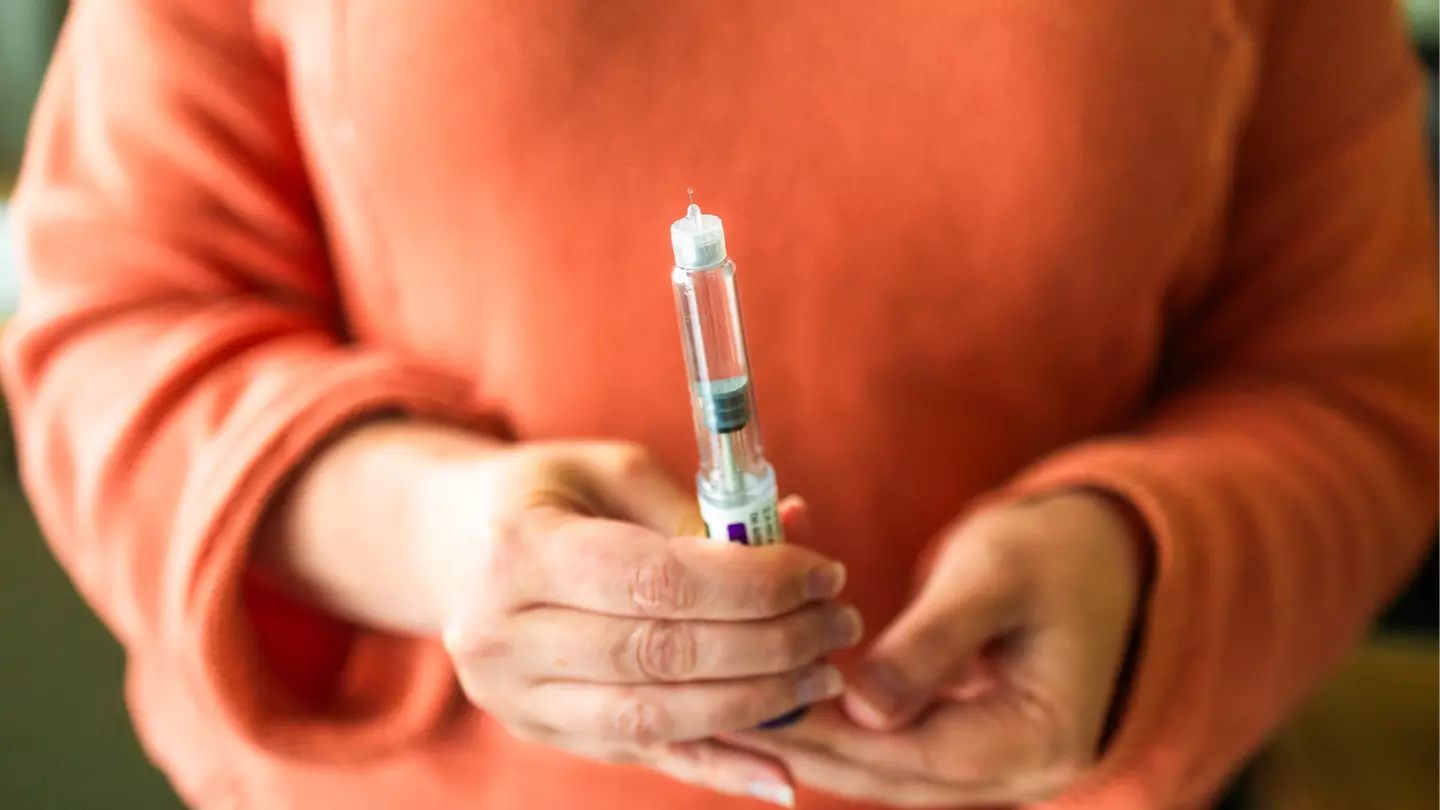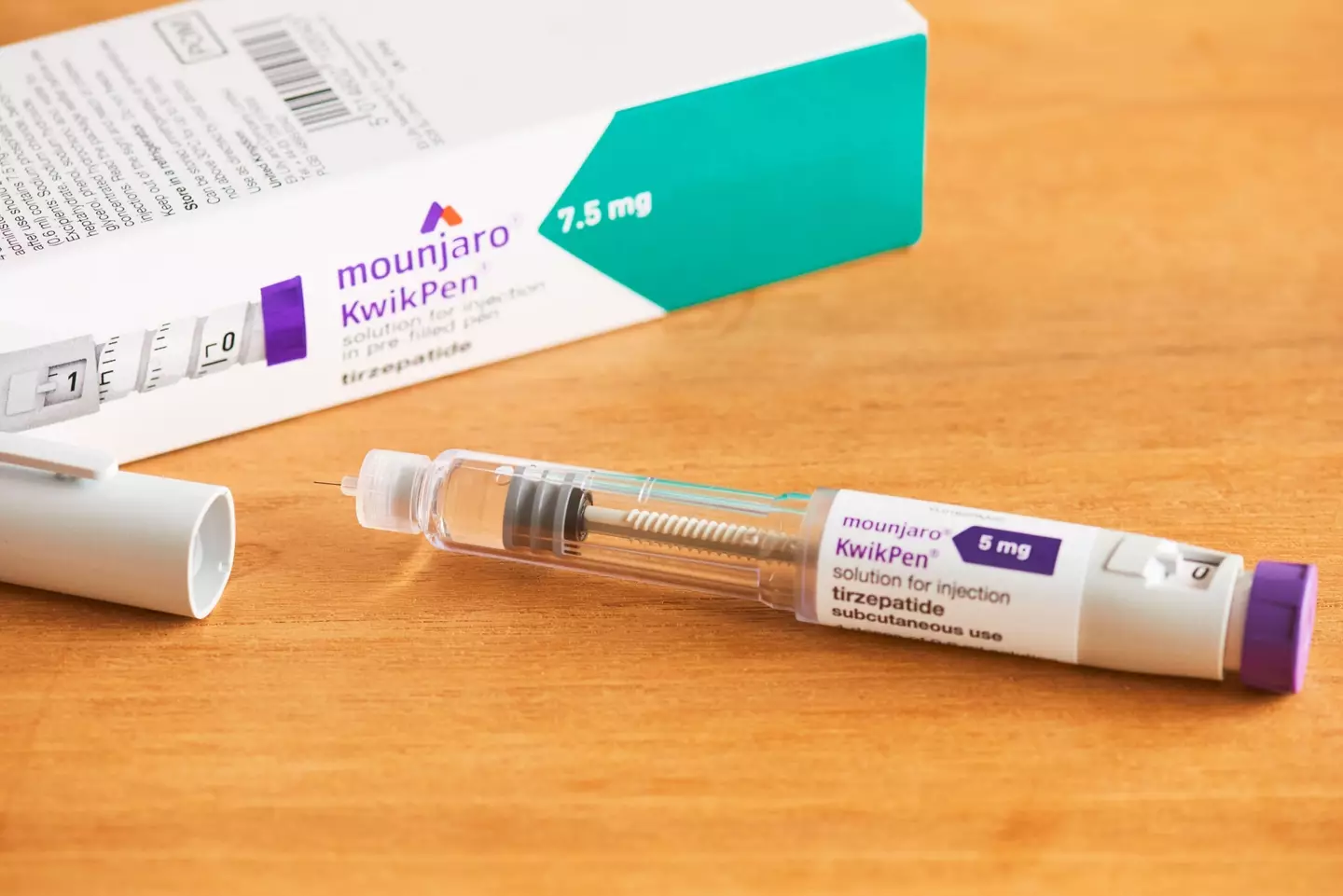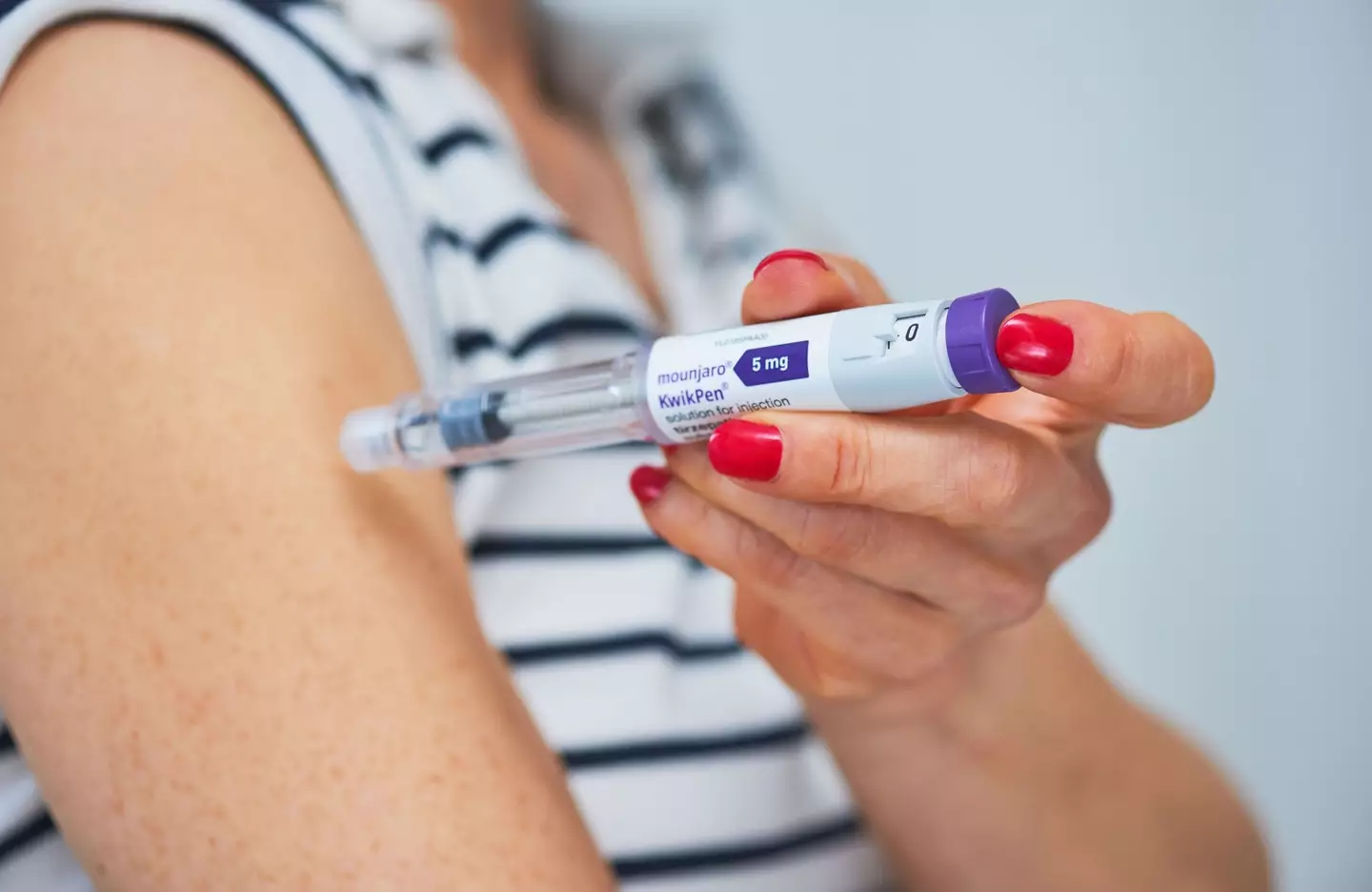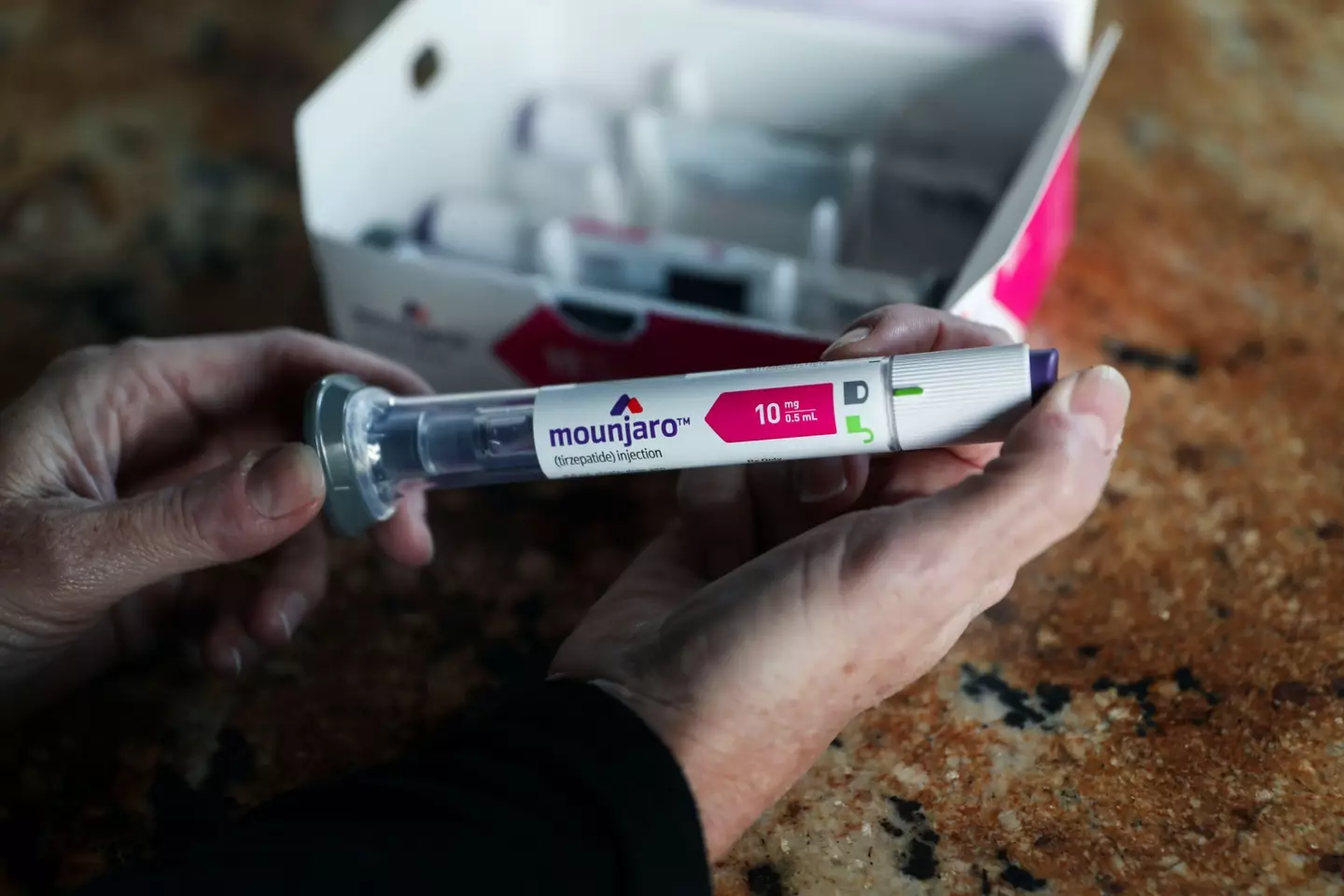
Health experts have explained exactly what happens when you stop taking Mounjaro for weight loss purposes.
There appears to have been a significant shift in the way we approach weight loss over the past year.
With the soaring popularity of GLP-1 medications for weight loss, more commonly known as brands like Ozempic, Mounjaro, and Wegovy, people are becoming more educated about the use of the drugs, particularly around the possible side effects.
During a recent clinical trial, Mounjaro was found to be a more effective weight-loss drug than its rival, Wegovy.
Advert
However, an area where there are slightly more question marks is what happens when people choose to come off the injections.
So, let's take a look at everything we know about Mounjaro so far.
How does Mounjaro work?

Mounjaro's clinical name is tirzepatide, and it was never originally designed solely to aid weight loss.
It's a medication that was created to help manage blood sugar levels in people with type 2 diabetes, with weight loss occurring as a side effect.
The drug works by mimicking the actions of two hormones that occur naturally in the body: glucagon-like peptide-1 (GLP-1) and glucose-dependent insulinotropic polypeptide (GIP).
These hormones regulate blood sugar levels and slow down the rate at which the stomach empties, leading to a reduced appetite - and, of course, weight loss as a result.
However, according to the NHS, Mounjaro is soon to be made available to patients for weight loss.
What’s the difference between Ozempic and Mounjaro?
While the drugs are similar, there are some key differences between the two. The first is how they work biologically.

Trials have shown that Mounjaro is more effective than Ozempic in managing blood sugar levels and promoting weight loss.
However, Ozempic is approved in the US for people with heart disease - but Mounjaro is not.
However, more research is being conducted, as it's thought Mounjaro helps to lower blood pressure, which may reduce the risk of other heart complications, according to Health.com.
Both drugs are administered in the form of weekly injections that come pre-filled with the desired medication. Still, while one Ozempic injection can be used for four doses, Mounjaro injections are single-use.
The cost is also a deciding factor for some, as Mounjaro is generally more expensive than Ozempic on average. Medical News Today notes that the list price for Mounjaro in the US is $1,079.77.
What are the side effects of taking Mounjaro?

The side effects of taking Mounjaro can be very varied, and the drug tends to affect people differently.
The most common side effects include feeling sick, diarrhoea, constipation, vomiting, heartburn, burping, and excess wind.
However, in an exclusive interview with Tyla, a 28-year-old man revealed some of the more unexpected side effects he has experienced with taking the injections.
Christian revealed that he got signed off on the drug by a private clinic, where he also gets access to a food therapist and a dietician for the package price of £200 per month.
Some surprising things he's experienced include struggling to sleep, being put off alcohol, and having bags of energy.
He said: "I've got loads of energy - like loads of energy. The doctor actually said to me that I'd be surprised. It kind of subdues your stomach but it also helps to burn your fat cells so it gives you loads of energy.
"One of the other side effects is I've been struggling to get to sleep, but I don't feel that's a very common one."
Another side effect he'd experienced was in regards to alcohol, as he said you 'kind of just don't want to drink', adding: It's weird. It's like it's kind of almost changed my tastebuds. I used to crave a beer, and now I look at them like eurgh no."
What happens when you stop taking Mounjaro?

So, the ultimate question on everyone's lips - what happens when you decide to come off the injections?
PhloClinic states that Mounjaro has a 'half-life of 5 days', meaning the drug's effectiveness is reduced by half after five days.
They add: "This means that, depending on your regular dosage, it can take up to 30 days for Mounjaro to fully leave your system."
Upon finishing the medication, the GLP-1 and GIP hormone receptors will no longer help regulate your appetite, and it's thought that they usually return to pre-treatment levels. As a result, you may experience an increased appetite and could regain some weight.
However, it is recommended that you maintain a balanced diet and a regular exercise routine to minimise the effects of discontinuing the medication.
Can you stop Mounjaro cold turkey?
While abruptly stopping doses of the medication is a possibility, experts do not recommend doing so, as it would likely increase uncomfortable side effects, which would be limited with a more gradual transition, PhloClinic says.
The advice is generally to consult your clinical team if you'd like to reduce your dose and come off Mounjaro to ensure a safe transition.
